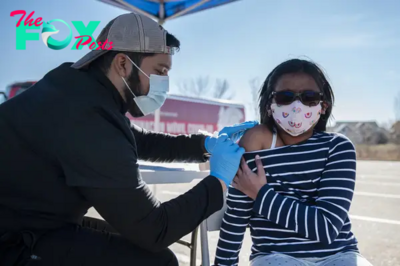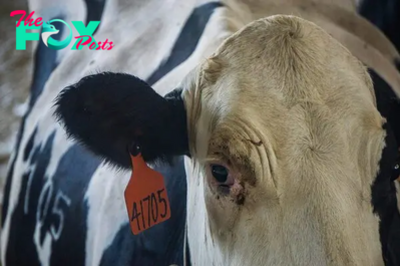Health
No human cases of rabies so far from Colorado puppy adoption event
More than 35 people have been referred for rabies post-exposure treatment following last week’s announcement about a rabid puppy at a rescue adoption event. But Colorado has so far identified no human cases as a result of the event, as state health officials continue to plead with those who were at the event to come forward for screening.
Rabies is almost universally fatal once symptoms appear, making this perhaps the most urgent public health response in Colorado since the early days of the COVID pandemic. The disease can be prevented after exposure if those exposed are treated before symptoms occur.
A spokeswoman for the Colorado Department of Public Health and Environment said Wednesday that the state has assessed more than 115 people to determine if they had contact with the puppy that could have spread the rabies virus to them. The more than 35 people referred for what is known as post-exposure prophylaxis came from that group.
More are expected to be screened as public health workers continue to interview people.
“I don’t want people to either minimize the risk or say ‘I didn’t have that much contact’ or ‘I probably wasn’t exposed,’” said Dr. Michelle Barron, the senior medical director of infection prevention and control for UCHealth and an expert in infectious diseases. “We want the public to get a formal assessment so (public Health officials) can ask those questions.”
The head of the rescue group that organized the adoption event posted on Facebook this week, and told 9News in an interview, that another dog from the infected puppy’s litter subsequently tested positive for rabies after being euthanized. State health officials confirmed the second positive test Wednesday evening but also said the negative tests for the remaining 10 puppies in the litter did not rule out the possibility that they, too, were infected.
This is because the test is conducted only on brain tissue, which, if positive, indicates the animal was both infected and infectious. Because rabies develops slowly, it is possible other puppies were also infected but that the infection hadn’t yet reached the brain — meaning they weren’t able to spread the virus when they were euthanized but they could have later become infectious.
“CDPHE is doing everything possible to protect people and other animals from rabies,” agency spokeswoman Kristin Richmann wrote in an email.
People who attended the adoption event should contact CDPHE for screening. They can call the agency’s hotline at 303-692-2700 during business hours or 303-370-9395 after hours and on weekends and holidays. Or they can email [email protected].
A 20-day delay
The puppy, a shepherd mix, was part of a litter brought from Texas to Colorado and made available for adoption at an event July 20 at Moms and Mutts Colorado Rescue for Pregnant and Nursing Dogs on West Oxford Avenue in Sheridan. The puppy was one of 12 in the litter, which was called the “July Shepherd Mix” litter or the “Celebrity Kids” litter at the event.
CDPHE spokeswoman Gabi Johnston said the puppy arrived in Colorado on July 16. It began showing symptoms of rabies July 29, became seriously ill and was euthanized. A veterinarian submitted a sample for rabies testing, which came back positive Aug. 7. CDPHE notified the public Aug. 9.
☀️ READ MORE
Colorado oil and gas operator with long record of environmental violations loses right to do business in state
Nearly 10,000 people are homeless in the metro area, but fewer are sleeping on Denver’s streets
Farms and farmers markets support food-insecure families. Can these initiatives meet growing demands?
That delay between when people were potentially exposed at the adoption event and when they were notified is not ideal because the post-exposure treatment should be started as soon as possible.
But it is crucial people receive the prophylaxis treatment any time before they begin showing symptoms of infection. Once people begin exhibiting symptoms, especially ones related to the virus’ attack on the brain, then rabies almost always kills — save for a handful of cases worldwide.
A wait of week — or years
Rabies has an irregular incubation period, depending on the type of exposure and the location of infection. A scratch on the hand from an infected animal, for instance, may take longer to show symptoms than a bite on the neck. The typical incubation period in humans is anywhere from three to 10 weeks, but it can be as short as a week or as long as several years.
Post-exposure treatment consists of a large dose of rabies-fighting antibodies as well as a four-shot course of rabies vaccination given over a period of two weeks. The idea is to amass an immune-system army to fight the virus before it can gain a foothold.

On Facebook, the rescue that ran the adoption event said it has worked closely with the state on the response but also said the state “created a panic” that has caused families to back out of other adoptions and has severely damaged the rescue’s finances.
Barron, the UCHealth doctor, said the state is being appropriately cautious.
She said it’s possible the puppy had a lower level of infectiousness at the adoption event, since it wasn’t showing symptoms there. But she said that’s not certain, which is why public Health officials are urging people to be screened and, if appropriate, start treatment.
“If this was not a uniformly fatal disease, we would play by different rules,” Barron said. “But it’s so high-risk that if we’re wrong about what information you’re giving us, you could die.”
-
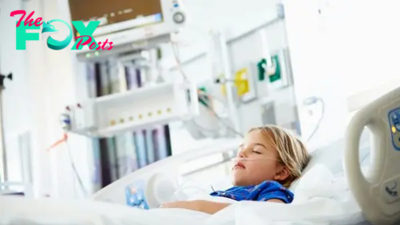
 Health1d ago
Health1d agoScientists finally explain MIS-C, the rare post-COVID sydrome seen in kids
-
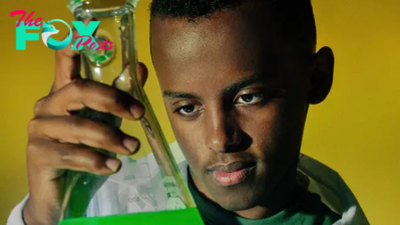
 Health1d ago
Health1d agoHeman Bekele Is TIME’s 2024 Kid of the Year
-

 Health1d ago
Health1d agoLargest animal genome sequenced — and just 1 chromosome is the size of the entire human genome
-

 Health1d ago
Health1d agoHard-to-treat traumas and painful memories may be treatable with EMDR – a trauma therapist explains why it is gaining popularity
-

 Health1d ago
Health1d agoWest Nile virus season returns − a medical epidemiologist explains how it’s transmitted and how you can avoid it
-

 Health1d ago
Health1d agoHispanic women are less likely to get PrEP treatment − new intervention could change that
-
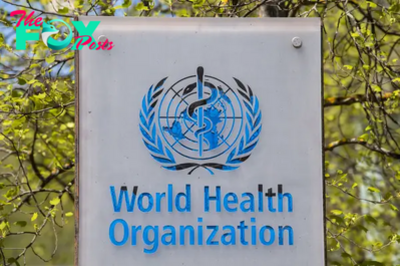
 Health2d ago
Health2d agoWHO Declares Mpox Outbreaks in Africa a Global Health Emergency
-
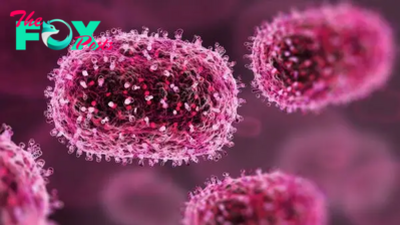
 Health2d ago
Health2d agoSweden reports 1st case of deadlier mpox outside Africa




